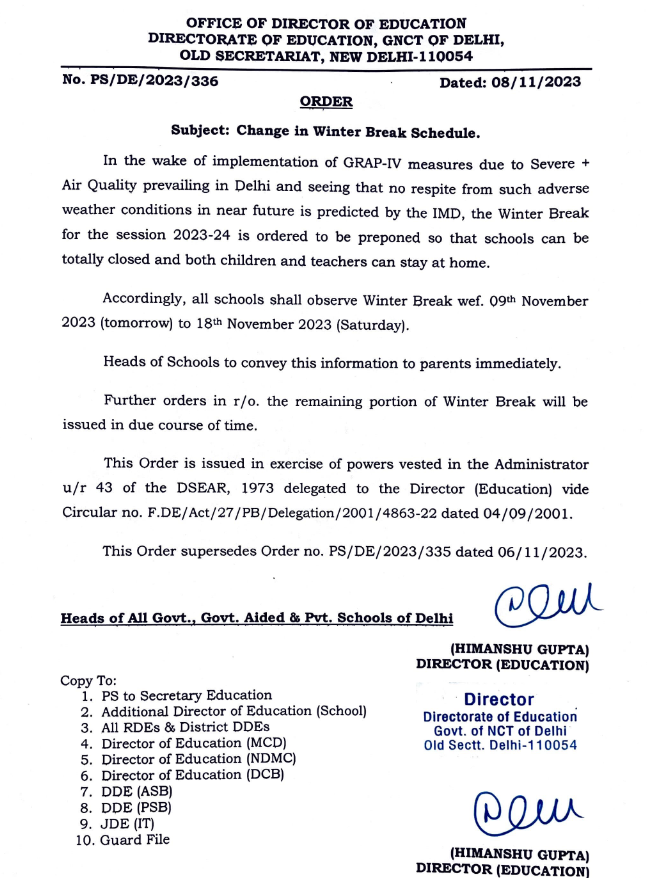
Delhi government announces early winter break in schools from Nov 9 to Nov 18 for All Classes as air quality turns 'severe' again
- Campus Updates
- 09 Nov, 2023
- 862
Delhi school holiday is extended till November 18. The government has called for an early winter break considering the Delhi Air pollution. Schools in Delhi were announced to remain closed till November 10 but now it is extended till November 18. The decision has been taken as the Delhi AQI continues to be in 'severe' state. Arvind Kejriwal-led Delhi government issued a notice on November 8 directing schools to announce an early winter break.
CAQM implemented the GRAP 4 in the Delhi NCR region due to deteriorating air quality. Schools in Delhi were closed for primary classes but now as the winter break is being preponed, schools are closed for all classes.
"In the wake of implementation of GRAP-IV measures due to Severe Air Quality prevailing in Delhi and seeing that no respite from such adverse weather conditions in near future is predicted by the IMD, the Winter Break for the session 2023-24 is ordered to be preponed so that schools
can be totally closed and both children and teachers can stay at home," Delhi government's Order reads.
"Accordingly, all schools shall observe Winter Break wef. 09th November 2023 (tomorrow) to 18th November 2023 (Saturday). Heads of Schools to convey this information to parents immediately. Further orders in r/o. the remaining portion of Winter Break will be issued in due course of time," the orders read.
"Accordingly, all schools shall observe Winter Break wef. 09th November 2023 (tomorrow) to 18th November 2023 (Saturday)," it added.
The air quality in Delhi and its suburbs dropped to the severe category again on Wednesday morning, with smoke from post-harvest paddy straw burning in neighbouring states accounting for one-third of the air pollution in the national capital. The city's Air Quality Index (AQI) stood at 421, worsening from 395 at 4pm on Tuesday.
Despite a marginal dip, the concentration of PM2.5, fine particulate matter capable of penetrating deep into the respiratory system and triggering health problems, exceeded the government-prescribed safe limit of 60 micrograms per cubic metre by seven to eight times in the capital.
It was 30 to 40 times the healthy limit of 15 micrograms per cubic metre set by the World Health Organisation (WHO).

